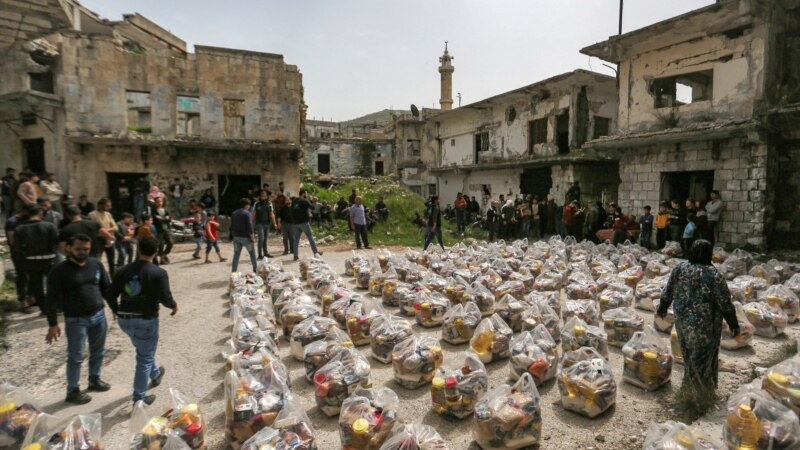
Here is a fast take on what the international community has been up to this past week, as seen from the United Nations perch.
Syria cross-border aid operation in limbo
As of late Friday, the U.N. Security Council had failed to renew the cross-border aid mechanism that allows humanitarians to bring aid trucks from Turkey into opposition-controlled areas of northwest Syria. Russia vetoed a 12-month extension and the council failed to support its counterproposal. The council has until Sunday night to find a new compromise, or the operation, which serves 2.4 million Syrians each month, will be forced to close.
Food insecurity growing
The United Nations warned Wednesday that the world is failing in its efforts to eradicate hunger, as 828 million more people had too little to eat in 2021 — 150 million more than before the COVID-19 pandemic struck in 2019.
Inflation driven by war in Ukraine pushes millions globally into poverty
A U.N. study released Thursday showed the first three months of the war in Ukraine had driven up the global cost of fuel and food, creating record inflation that helped drive 71 million people into poverty.
Looming famine in Ethiopia
UNICEF’s Ethiopia representative, Gianfranco Rotigliano, told VOA this week that the U.N. children’s agency is not receiving the necessary foreign aid to avert a humanitarian crisis in the country. He warned that without the additional help, eastern Ethiopia could face a famine triggered by years of drought.
In brief
— U.N. Secretary-General Antonio Guterres expressed his shock Friday at the assassination of former Japanese Prime Minister Shinzo Abe. In a statement, he said he had the privilege of knowing the prime minister, who served four terms as the government’s leader. He said Abe will be remembered as a staunch defender of multilateralism, a respected leader and a supporter of the United Nations. He commended Abe for championing the Sustainable Development Goals and advocating for universal health coverage.
— Two U.N. peacekeepers were killed in northern Mali on Tuesday and nine others were wounded in an improvised explosive device attack on their convoy. The peacekeepers were all from Egypt. MINUSMA, as the mission is known, is one of the U.N.’s most dangerous. In the first six months of this year, 10 peacekeepers have been killed in Mali.
— Humanitarians are struggling to assist nearly 9 million people in South Sudan, as funding shortages have led to aid operations being suspended, reduced or potentially stopped. The U.N. has appealed for $1.7 billion to help 6.8 million people this year but has received just a quarter of that amount. As a result, 220 health care facilities and nine state hospitals could be forced to shut their doors next month, affecting 2.5 million people. While nearly 2 million others could lose access to clean water, sanitation and hygiene services. Humanitarians said Tuesday that $400 million is urgently needed to keep a minimum of services operational.
— The World Health Organization warned Thursday that new variants of COVID-19 are spreading, and people must remain vigilant and employ public health measures to protect themselves from contracting and transmitting the deadly disease. The latest WHO figures show reported cases of COVID-19 have increased nearly 30% globally over the past two weeks. Current figures stand at nearly 558 million confirmed cases, including more than 6.3 million deaths.
Quote of note
“The international order is at risk of coming apart at the seams.”
— Secretary-General Antonio Guterres in a message to G-20 foreign ministers who met this week in Bali, Indonesia. The U.N. chief urged them to focus on the climate crisis; the food, energy and finance crisis; and the unequal recovery from the COVID-19 pandemic.
What we are watching next week
Virginia Gamba, the special representative of the secretary-general for children and armed conflict, will roll out her latest report on the subject Monday. It names and shames governments and armed groups who kill, maim or recruit children.
